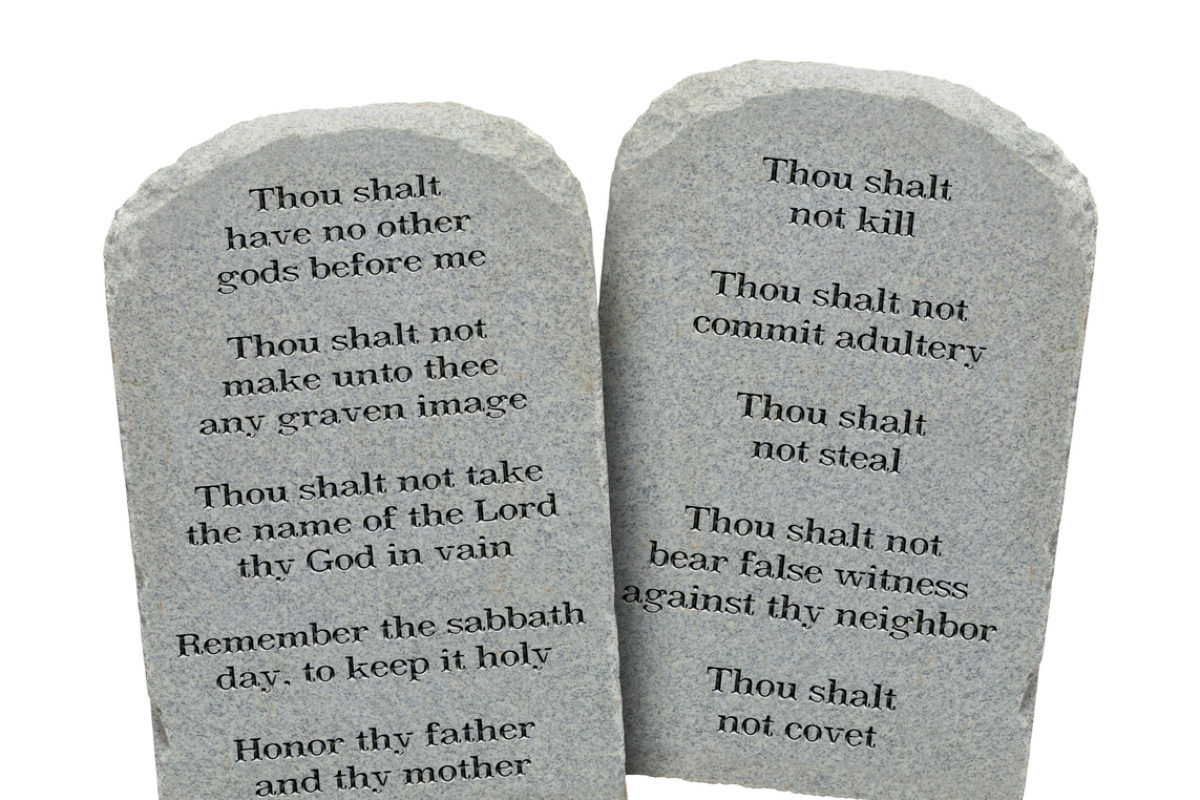"if thy brother or sister offend thee, thou shalt take him or her between him or her and thee alone"
Some quick reflections on the "law" received as promised once the saints gathered at the Ohio:
1. Part of living in Zion means having no poor among you. Section 41 had revealed a previously unattested calling in the Restored Church: Bishop. The term comes from the Greek episcopos--literally overseer. Section 42 lays out the economic system of Zion and the role of the bishop in it, and boy is there a lot of oversight involved. People have to be willing to sit down with their ecclesiastical leader who determines with them the spiritual overlap between temporal needs and temporal resources, then leave behind good things they've earned or inherited for the benefit of those whose resources aren't sufficient for their needs. And this new bishop is the discerner. The Church is no longer merely a spiritual state of the heart, but an embodied institution organizing to meet collective embodied needs through its embodied members. New saints were learning a mind-blowing new set of pragmatic concepts about what it means to truly live like the Lord does--caring for one another.
2. There are some watershed beliefs and commandments we submit to accountability on in our modern bi-annual Temple Recommend interviews. We can be presumed worthy and in compliance with standards of finer detail if we can honestly attest to compliance with standards on a key subset of major spiritual dividers. This group didn't yet have the Word of Wisdom in force, and I'm uncertain as to the teachings and practices on the Law of Tithing at this time. But steering clear of murder, theft, lying, and adultery certainly seem to me an apt proto-temple recommend set of questions.
3. The Zion-like society the Church was newly organizing to live was not conceived as entirely isolated. They were subject to local, state, and federal law, and interfaced with broader society in as friendly and mutually beneficial a manner as the surrounding society permitted. I was curious, however, in reading the list of prescriptions of how the Church was to deal with members that broke the "big four" commandments listed in point 2 above, that in 3 of them, the solution was to turn members over to the law of the land, but not for adultery. Why not adultery? At the time, in New York, Pennsylvania, and Ohio, there were anti-adultery laws on the books, as was common for the states. Did the Lord feel that the laws against murder, theft, and lies were sufficiently anchored in righteousness, and made adequate provision for degrees of crime, process of determining guilt, and range of sentencing severity that the Church didn't have to have higher standards? Was it that He knew that the saints would soon need to have something standard on adultery to apply even if frontier states like Missouri didn't have anti-adultery laws in place (it didn't)? My current hypothesis is that adultery is treated differently because it involves not merely a damaging act against another person (and, in fact, our modern argument against all such anti-adultery laws is wrong when it asserts that sex between consenting adults does no harm to either party), but a breach of at least two separate covenant relationships: the marriage itself, and the economic consecration that the entire household is bound to with the Church's new economic system. Infidelity harmed not just the members of the family, but created a new need to redistribute property committed to a kind of property arrangement that no federal, state, or local laws were yet prepared to deal with.
4. Finally, in laying out a new spiritual and economic order, in proscribing already long-forbidden acts and setting forth the Church's processes for dealing with serious infractions, the latter few verses of Section 42 also prescribe a manner of avoiding the escalation of minor issues outside the category of these other two. People with good intentions, living worthily, are still going to have friction from time to time. Why? Because we're diverse humans, and each need our space to learn how to grow together. So how do we handle offenses? The key is privately. Pull the offender aside. share your perspective on what they did, focus on the acts, not your assumptions of their intentions. And give them a chance to own up, or at the very least explain their perspective. When we give each other chances to repent, not only is there less friction, there's more healing. As we go about our own efforts to establish and confirm our own individual, household, ward, community, and broader micro-Zions, let's keep in mind our model--the Lord Jesus Christ--is one of forgiveness. The laboratory of life knits our hearts in one, and lifts the poor in substance and in spirit only as a function of our own individual willingness to forgive expands. If we are here on this earth to learn to become like our Savior, we have to learn to forgive as He forgives. Eternal peace is built from nothing less.


No comments:
Post a Comment